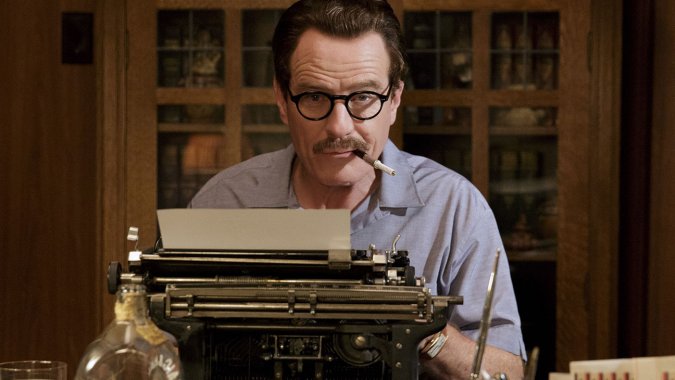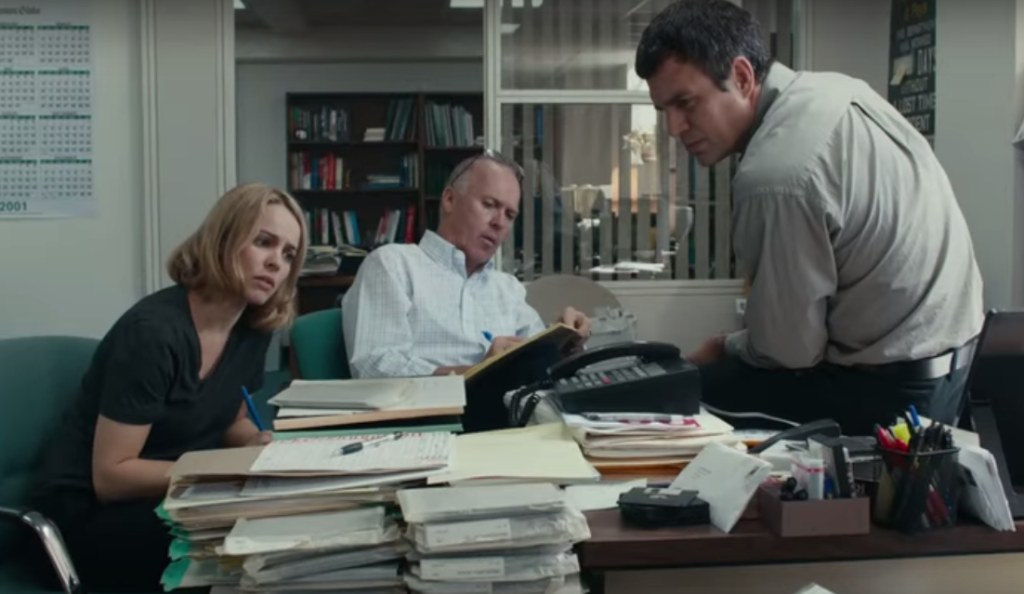
In the movies, going to jail for your principles is overrated. But in the historical drama Trumbo – about the 1950s Hollywood blacklist – we get to see the real extent of the sacrifices made by the principled man and his family.
Dalton Trumbo (Bryan Cranston) was a novelist and Hollywood screenwriter who was named as a Communist, was sent to prison for contempt of Congress and then blacklisted by the Hollywood studios. After prison, Trumbo had to earn his living by writing without credits (the credit going to other writers as “fronts” or to fictional “writers”). He received no screen credit for the Oscar-winning screenplays for Roman Holiday and The Brave One. Nor for the noir classics Gun Crazy and The Prowler. Eventually, the end of the blacklist period was signaled when Trumbo received screen credits for his work on Exodus and Spartacus.
It’s a compelling story and Trumbo was a very compelling character – flamboyant, full of himself, wily but sometimes politically naive. Cranston is really quite brilliant in capturing Trumbo’s wit, signature eccentricities and his emotional turmoil.
Families are often collateral damage, and that was the case here. We see the impact on Trumbo’s wife (Diane Lane) and daughter (Elle Fanning) – not just the financial and social hardships, but in living with a man under so much stress.
To tell the story of this historical period, some characters are compressed – but not distorted. Hedda Hopper (Helen Mirren) is portrayed as the leader of the blacklist (which would have flattered her), and John Wayne’s (David James Elliot) role is prominent. There’s a composite character who represents the other victims of the blacklist, played by Louis C.K. (another really fine performance from C.K.). Edward G. Robinson (Michael Stuhlbarg) represents the good liberals who caved under pressure and named names. Kirk Douglas (Dean O’Gorman) and Otto Preminger (Christian Berkel) are historical good guys (but not without self-interest). John Goodman has a hilarious turn as a low budget producer. The entire cast does a fine job, but Cranston, Stuhlbarg, C.K. and Fanning are extraordinary.
We see also actual file footage of Ronald Reagan, Robert Taylor and Joe McCarthy, along with some still photos of the ever-ominous Richard Nixon.
Trumbo is a very successful and insightful historical study, and Cranston’s performance was Oscar-nominated. Trumbo is now available to stream on Amazon Video, iTunes, Vudu, YouTube, Google Play and a host of PPV outlets.



